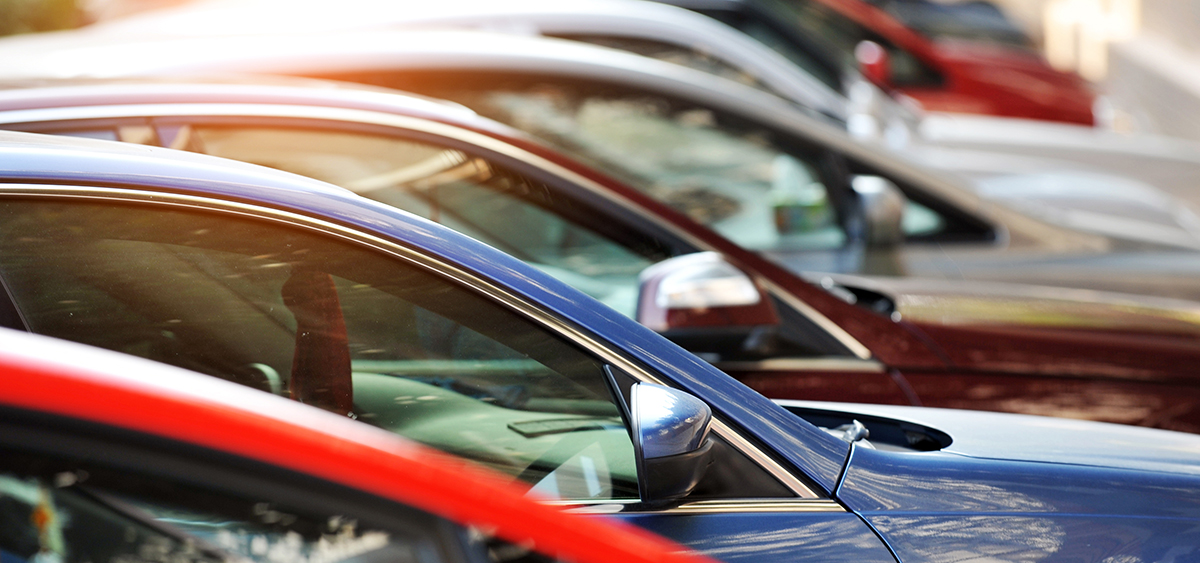You’re thinking of buying a used car or motorcycle from a dealer or another professional seller? It is a good idea to be cautious. But you should know that the law gives you more protection when you buy a used car or motorcycle from a merchant than when you buy one from an individual.
This article explains some things you should check.

Have you thought about these steps?
- Read the label.
- Have the vehicle inspected.
- Consult the Register of Personal and Movable Real Rights (“RDPRM”).
- Read and understand the contract.
- Make sure the contract is complete.
- Get information about the manufacturer or dealer warranty.
1. Read the Label
By law, merchants must put a label on used cars and motorcycles. You must be able to read the whole label from outside of the car or motorcycle. The label has information useful to buyers.
The label on the used car or motorcycle must have this information:
- price of the used car or motorcycle
- miles or kilometres the vehicle has travelled
- model year, serial number, make, and model and cubic capacity of the engine
- whether the car was ever used as a taxi, demo car, driving school car, police car, courtesy car for customers, rental car, or ambulance
- the name of any merchants or public organizations that have been owners or long-term renters of the car or motorcycle
- repairs done while the car or motorcycle has been at the merchant’s
- class of the car or motorcycle and its warranty features
- If applicable, the fact that a court has declared the car or motorcycle a “seriously defective automobile”
- the fact that the name and phone number of the previous owner will be given to you if you ask for them (The previous owner can tell you if the used car or motorcycle drives well in the winter, if it has ever been in an accident, etc.)
2. Have the Vehicle Inspected
Having a used car or motorcycle inspected by a mechanic will let you judge its condition. If you are thinking of buying a used car, you have the right to have the vehicle inspected by a mechanic, at your expense. The mechanic you choose must be located at a reasonable distance from the place of sale.
3. Consult the Register of Personal and Movable Real Rights (RDPRM)
The Register of Personal and Movable Real Rights (Registre des droits personnels et réels mobiliers) or RDPRM is a computerized list that anyone can access to check if there are debts or other charges on property.
It’s crucial to make sure that there are no debts or other charges on the used car or motorcycle that you want to buy.
Why?
Because if there are debts or charges, the creditor could ask you to pay or could take back the vehicle even if you’re now the owner it and you don’t have any debts.
For example, if you buy a used car without knowing that it hasn’t been fully paid for, you might have to repay the loan, or you could even lose the car, if it gets repossessed.
To check if there are charges or other debts on a used car or motorcycle that you want to buy, you must consult the RDPRM. You have to pay a fee to do this.
You can consult the RDPRM from the comfort of your home because it is online. You can also get information by phone, mail or fax.
4. Read and Understand the Contract
Once you’ve chosen the used car or motorcycle you want to buy, the law obliges the merchant to make a contract of sale in writing. The contract can also be in digital form, but only with your consent.
Read the contract carefully before signing it. Make sure that you understand everything. Don’t be shy about asking the merchant questions or consulting a legal professional.
5. Make Sure the Contract is Complete
By law, the contract must include this information:
- number of the permit issued to the merchant
- place and date that the contract was signed
- your name and address
- merchant’s name and address
- price of the used car or motorcycle
- amount of each tax
- total amount to be paid
- features of the warranty
The label that was on the car or motorcycle must be attached to the contract. This means that the information on the label is part of the contract. Only the price and the features of the warranty can be changed according to what you have agreed on with the merchant.
If your contract does not have all this information and you suffer harm because the information is missing, there are steps that you can take to have it cancelled by a court.
6. Get Information About the Manufacturer or Dealer Warranty
When you buy a used car or a motorcycle, you should find out if the original maquenufacturer or dealer’s warranty is still valid.





